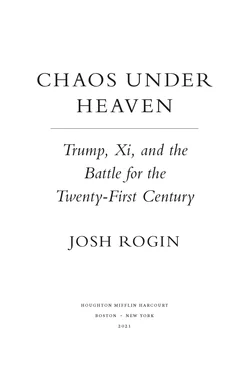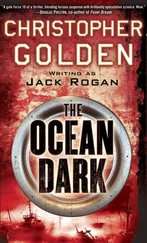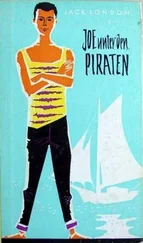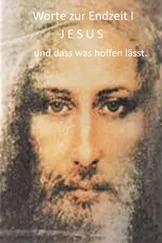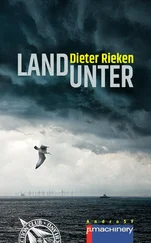Everyone involved could agree, at least, that Trump was livid. “However the phone call happened, the president reads about it in the New York Times as the biggest blunder in forty years, which he doesn’t appreciate,” a senior transition official said. “His wonderful staff had just told him to do the call and promised him positive results.”
Trump’s defensiveness was on display when he tweeted the next day that he hadn’t initiated the call: “The President of Taiwan called me today to wish me congratulations on winning the Presidency. Thank you!”
This left Beijing in a pickle. Speaking with Taiwan’s leader was an affront that the rulers in China could not ignore. At the same time, back in Beijing, they were receiving the opposite signal from the president—this one conveyed by the Chinese government’s oldest and most trusted American friend.
Nobody in Charge
On the very same day of the Taiwan call, former secretary of state Henry Kissinger was in Beijing conveying a completely different message directly to Chinese president Xi Jinping. Trump, Kissinger said, wanted US-China relations to move forward in “a sustained and stable manner.” With his president’s personal approval, Kissinger had come to set a tone of cooperation and engagement with Beijing, and to reassure Xi that Trump’s aggressive rhetoric during the campaign did not mean that he wanted to go to war—figuratively or literally—with China.
Kissinger has been among the most influential—and controversial—figures in US-China relations since he traveled there in 1971 to meet Premier Zhou Enlai, meetings that paved the way for normalization of the bilateral relationship in 1979 and established a relationship that would allow anti-Soviet cooperation during the Cold War. Since the establishment of his consulting firm, Kissinger Associates, in 1982, the former secretary of state has also been in business with China’s “red capitalists.” These party-backed businesspeople set up shop in Hong Kong in the 1980s and 1990s in part to generate capital for the Communist Party, but also to pilfer or purchase technology and intelligence from the rest of the world.
Kissinger’s ties to the red capitalists date back to 1988, when Kissinger partnered with China International Trust and Investment Corporation, an investment company controlled by the Chinese government, to establish a boutique investment firm called China Ventures. Based in Delaware, it got off the ground with $75 million in backing, the bulk of which came from China. Kissinger served as chairman, CEO, and chief partner of the company, which described itself in its brochure as only investing in projects that “enjoy the unquestioned support of the People’s Republic of China.” Kissinger planned to publicize its establishment in June 1989, but the Tiananmen Square massacre put that on hold. Immediately after the massacre, Kissinger offered commentary on ABC and later criticized the US government’s decision to impose sanctions on China. An ABC executive later said that, had he known of Kissinger’s financial interests in China, he would never have invited him to comment on the massacre. In 2008, Kissinger played down Beijing’s human rights record during the Olympic games and said to China’s state media outlet, Xinhua, “Friends of China should not use the Olympics to pressure China now.”
By the time of Kissinger’s meeting with Xi on December 2, 2016, in short, the Chinese leadership saw the former secretary of state as a reliable friend and a trusted interlocutor. But that fact surely made their conundrum even more confounding.
Steeped as they were in the patterns and logic of diplomatic protocol and signaling, Chinese leaders must have struggled to believe that these two events—Trump’s inflammatory Taiwan call and Kissinger’s conciliatory Beijing meeting—could have occurred on the exact same day purely by coincidence. But how to explain the mixed messages? Were they supposed to listen to the personal message Trump sent through Kissinger or pay attention to the fact that Trump had just thrown down the gauntlet on Taiwan, a core national issue for Beijing? Who, they must have wondered, was in charge of Trump’s China policy anyway?
The truth was, nobody was in charge of Trump’s China policy. There was no China team. There was no written China strategy. The closest anyone ever came to articulating one was during the campaign, in candidate Trump’s June 28, 2016, speech in Monessen, Pennsylvania, an address that was written by Peter Navarro and Stephen Miller, who at the time were writing Trump’s foreign policy into his speeches. Miller would become Trump’s most trusted policy adviser and speechwriter. Navarro would be given a newly created job as head of the White House Office of Trade and Manufacturing Policy, which hadn’t previously existed. It would take years for the ideas they infused into the campaign to make it into Trump’s official policies—but even before the election, Miller and Navarro had succeeded in committing the new president to confronting China if he won office, and laid out the trade hawk’s theory of the case against Beijing.
In his Monessen campaign speech, Trump blamed the administration of Bill Clinton—as well as the influence of Trump’s 2016 electoral opponent, Hillary Clinton—for admitting China into the World Trade Organization, a move Trump called second only to NAFTA in the history of bad deals. “Then, as Secretary of State, Hillary Clinton stood by idly while China cheated on its currency, added another trillion dollars to our trade deficits, and stole hundreds of billions of dollars in our intellectual property,” Trump said.
Trump went on to lay out a seven-point plan for restoring America’s manufacturing base and righting the trade imbalance with China. Point 1 was a promise to withdraw the United States from the Trans-Pacific Partnership, the twelve-nation trade deal Obama spent years negotiating as a strategic play vis-à-vis China. For the Obama administration and many in Congress, TPP was not just about trade; it was the United States’ attempt to counter China’s economic rise in Asia and key to shoring up America’s regional alliances. But in the campaign, both Trump and Clinton disavowed it due to its bitter unpopularity on the far sides of both parties. Trump made economic nationalism a cornerstone of his campaign and promised to kill it on day one.
Points 2 to 4 had to do with NAFTA and Europe. Points 5 and 6 promised to label China a currency manipulator and bring cases against China at the WTO, respectively. Point 7 was where Trump previewed the specific weapons he would later use to wage his trade war: “If China does not stop its illegal activities, including its theft of American trade secrets,” he intoned, “I will use every lawful presidential power to remedy trade disputes, including the application of tariffs consistent with Section 201 and 301 of the Trade Act of 1974 and Section 232 of the Trade Expansion Act of 1962.”
Trump likely didn’t know the specifics of these laws, but he was threatening to use unusual although not unprecedented tools to punish China through tariffs and other measures. George H. W. Bush had threatened China with a 301 investigation, which allows the US government to take drastic measures to protect the US economy, but backed off after Beijing signed a memorandum of understanding it didn’t honor. Obama had used tariffs to protect the American steel and aluminum industries, but by invoking Section 232, Trump was threatening to use tariffs under a national security justification.
Bannon, Navarro, and Miller were previewing their ideas for the trade war they would spend the first year of Trump’s presidency trying to implement. Their theory of the case was that the Chinese economy was vulnerable to pressure, if only real pressure could be brought to bear. There was evidence at the time to support this assumption. China’s economy grew 6.7 percent in 2016, according to its own self-reporting, but even that was China’s slowest growth year since 1990.
Читать дальше
